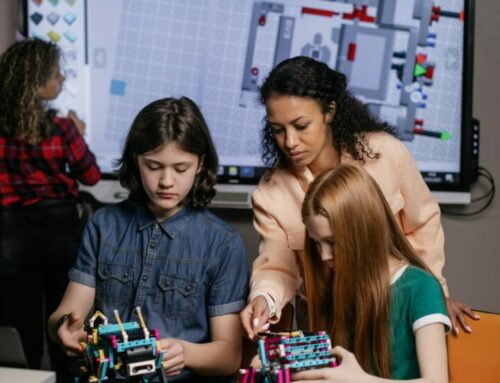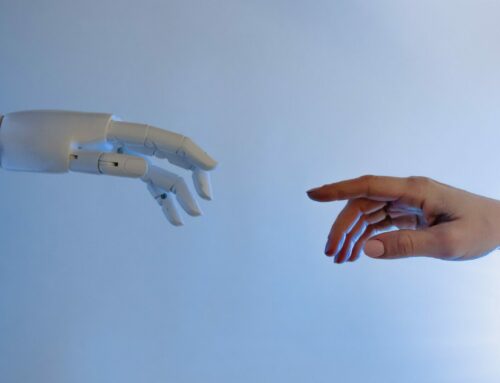Rethinking higher education in the service of humanity
Patrick Blessinger
St. John’s University (NYC) and International HETL Association
As I reflect on the first 25 research-based articles I have authored and co-authored over the past several years with University World News, I would like to evaluate and summarise the key findings that have emerged from the empirical evidence used to ground these articles.
The findings discussed in these articles is further explicated in the peer-reviewed book series, Innovations in Higher Education Teaching and Learning, a research collaboration between Emerald Group Publishing, the International Higher Education Teaching and Learning Association (HETL) and hundreds of educational researchers and scholars from around the world. Other research on higher education is disseminated through the Journal of Applied Research in Higher Education.
HETL (in consultative status with the United Nations Economic and Social Council or ECOSOC) initiated this book series to further the mission of ECOSOC and to support goal four of the UN Sustainable Development Goals initiative (Ensure inclusive and quality education for all and promote lifelong learning).
Emerging issues
The purpose of these publications is to conduct international peer-reviewed research, using multiple research methodologies, on the development of higher education around the world.
In a world undergoing dramatic change, it is important that those who work in the higher education space be able to understand the major issues emerging in the field. To this end, analysing the relevant data and theories is a necessary first step in understanding the underlying mechanisms driving these issues.
Thus far, this collaborative-based series has produced 10 volumes on core issues important to higher education: inquiry-based learning, university partnerships, doctoral education and global citizenship.
Forthcoming topics will cover other core issues such as: equity and inclusion, refugee education, international education, cultural competence and learning communities.
The challenge for educational scholars and researchers is to make rational sense of the research data, while at the same time attaching appropriate meaning to the data that allows educational policy-makers and leaders to understand the implications of the findings and then to apply the findings in practical and feasible ways which will help guide higher education in a positive direction.
In short, the chief aim of this research is to work at the intersection of educational policy, practice and theory for the betterment of higher education.
Paradigm shifts
Within this broad context and remit, the research findings show that higher education has, in recent years, experienced three major paradigm shifts that are interdependent and mutually reinforcing:
- The development of lifelong learning as a human right,
- The democratisation of knowledge, and
- The development of the global knowledge society.
Changes in these core areas have been greatly influenced by the processes of globalisation-internationalisation and the concomitant changes across the political-legal, economic, socio-cultural, technological and environmental landscapes.
These paradigm shifts have caused educators to rethink higher education beyond the purely utilitarian perspective. In a world that is rapidly changing, higher education must engage in a continual renewal of itself at all levels and in all areas.
As a result of these macro forces, higher education has also experienced dramatic meso and micro level changes, including the following, among others:
- The emergence of universal access (for example, diversificationand inclusion in higher education, internationalisation of higher education and open education);
- Development of more effective forms of student learning (for example, creative learning, research-based learning and new doctoral programmes); and
- Greater emphasis on a rights-based approach to higher education (for example, universal human rights, humanistic education and meaningful education).
Other emerging issues that will be discussed in future articles and books will centre on higher education’s role in: civil society, sustainable development, educational quality, new literacies, educational governance, leadership and management, indigenous education, integrative teaching and learning, peace education and humanistic education.
All these topics flow from the core macro topics of democracy, rights and learning which are reflected in the three major paradigm shifts.
Policy, practice and theory
Emerging trends in theory development tend to centre on a constructivist approach that contends that education is both individually and socially constructed. Within this approach, education is viewed as a social system where people attach values and meaning-making to their knowledge that, in turn, influences their understanding and interpretation of the world (that is, their worldview) and this worldview, in turn, helps shape their reality.
In this paradigm, the intersubjective nature of society and education exemplifies the importance of how individual actions, values and ideas help shape their reality and perceptions.
As a result, personal agency, identity and normative beliefs are viewed as a primary means by which individuals and groups enact change and attach meaning to actions at all levels. This paradigm therefore stresses the importance of meaning-making, identity development, shared universal values and normative ideas for change.
Thus, this approach sees socio-cultural-historical structures as perhaps the most important factor in shaping reality. These ideas, as they relate specifically to the ongoing development of higher education teaching and learning, are further examined in the book, Meaning-Centered Education.
In addition, in the book, Democratizing Higher Education, the authors examined national systems of higher education around the world to better understand the most salient socio-political-historical forces underlying emerging trends in global higher education.
Higher education for the common good
In spite of the tremendous changes occurring in higher education, colleges and universities have demonstrated remarkable stability during the nearly 1,000-year history of higher education. Since colleges and universities are, by definition, social institutions, the main challenge for them has been to implement timely change where needed while, at the same time, remaining committed to those core ideals that define their identity and mission.
To better understand higher education and the environment it operates within, one should examine higher education from a comprehensive, global, multidisciplinary view. To this end, and as a result of several years of multi-level research into the core issues driving higher education, the research findings suggest that higher education would be better served by being reconceptualised from a more contemporary humanistic perspective.
Since humanism is based on social justice and self-determination principles, a humanistic perspective represents a more holistic view of human development and the world that humans occupy.
Broadly speaking, the cornerstones of the humanistic perspective are equity, inclusion and responsibility. As such, it includes the political, economic, socio-cultural, ethical and ecological dimensions of higher education. To this end, higher education should embrace a bold vision of higher education in the service of humanity and for the common good.
Patrick Blessinger is an adjunct associate professor of education at St John’s University, New York City, United States, and chief research scientist for the International Higher Education Teaching and Learning Association. Email: [email protected].
Suggested Citation:
Blessinger, P. (2018). Rethinking higher education in the service of humanity, Higher Education Tomorrow, Volume 5, Article 5, https://www.patrickblessinger.com/rethinking-higher-education-in-the-service-of-humanity
Or
Blessinger, P. (2018). Rethinking higher education in the service of humanity, University World News, http://www.universityworldnews.com/article.php?story=20180711094726636
Copyright © [2018] Patrick Blessinger
Disclaimer
Opinions expressed in this article are those of the author, and as such do not necessarily represent the position(s) of other professionals or any institution.




